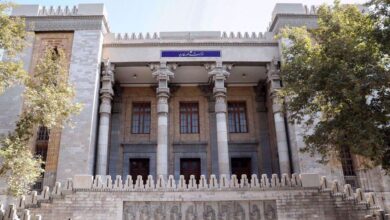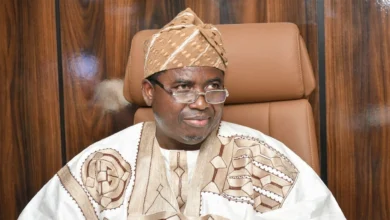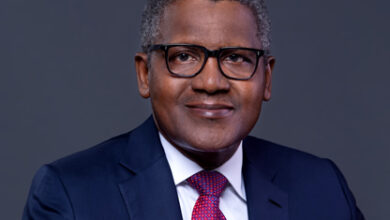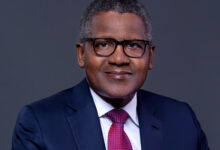The needless controversies over the OIC: A SPECIAL REPORT
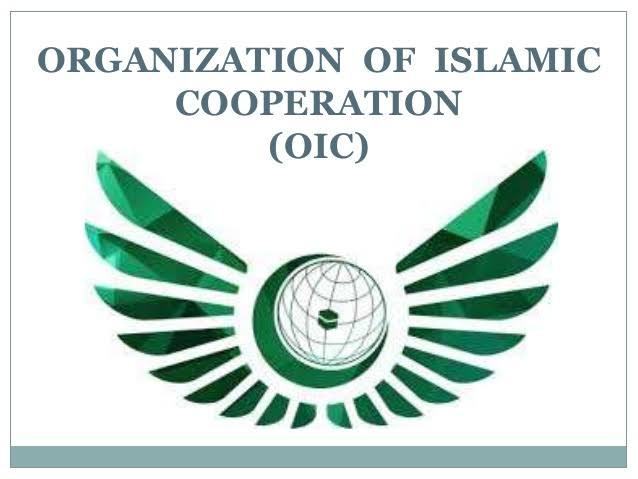
By BASHIR ADEFAKA
The Christian Association of Nigeria (CAN), once again in its traditional anti-Islamic crusade, came up Friday with fresh condemnation of President Muhammadu Buhari’s presence at the summit of the Organisation of Islamic Conference (OIC). It did this just as two socio-cultural groups, Afenifere and Ohaneze, known to be CAN’s allies in their unhidden needless fraternity against Islam and Muslims in the country, also towed its line. In addition, ex-President Olusegun Obasanjo last week accused PMB of Fulanisation and Islamisation of Nigeria.
But what is the basis for this unending fraternity of groups who are supposed to be more of civility and God consciousness in their dealings, utterances especially in a fragile situation where the nation has found itself and which is not far from being their heating up of the polity? They said the basis is OIC and that it is to Islamise Nigeria. It is however unclear whether it is also OIC that is going to help President Fulanize the cosmopolitan society that Nigeria’s sovereignty denotes.
Just for clarity purpose, it must, simply put, be said that OIC, Organisation of Islamic Conference, is not an Islamisation but a coming together of nations with large number of Muslims with a view to talking mainly economy and development of member countries. What is irony in the anti-OIC crisis being crewed by only some Christians hiding under the canopy of CAN and their ilks among ethnic nationalities in Nigeria is the fact that even the United States of America (USA) that is supposed to be the headquarters of Christianity in the world is a member of OIC signposting that it is not even membered by only Muslim majority but also countries where Muslims are considered deserving the rights to freedom of participation and which can best be advanced by government of the country.
The Organisation of Islamic Conference (OIC) is therefore the second largest intergovernmental body, globally, after the United Nations (UN).
May be the controversy, having only in Nigeria at all times, is happening again this time because it is being held at Makkah, headquarters of Islam in the world and being hosted by the Custodian of the two Holy Mosques and Saudi Arabian King Salman bin Abdul Aziz Al Saud. But does it matter even at that? After all, sometimes ago, the Vatican that is political headquarters of the Christianity all over the world hosted a conference on global peace and even invited the Leader of Nigerian Muslim Community and Sultan of Sokoto, Alhaji Muhammad Sa’ad Abubakar as speaker. Muslims of Nigeria, rather than seeing that invitation from the lens of the CAN, Afenifere and Ohaneze, supported the move that the world may be in peace.
This current summit holding in Makkah is expected to address “current issues in the Muslim world” and “recent developments in a number of OIC member states”, according to the official agenda. Topping the summit discussions will be regional security issues amid soaring tension between Iran and the United States and its Gulf allies.
If, for instance some Christians are complaining that the Muslims are gathering somewhere to talk about tackling Muslim related security situation like Boko Haram in Nigeria and ISIS in parts of the Middle East, then where is their moral justification for tagging the criminal actors to Islam and claiming Islam teaches that which they do? It can only be based on shameless mischief that some people would engage in such an attitude which will bring no more or less than backwardness and Nigerians must stand up all together against it. What does it matter if solution to the nation’s collective challenge comes from Christian or Muslim world, so long results are delivered in the sincere interest of all?
What is the OIC?
The OIC’s mission statement bills it as “the collective voice of the Muslim world” that works to “protect the interests of the Muslim world”. It was established by 24 member states in 1969.
Today, with 57 member states from four continents, the OIC is the second-largest intergovernmental organisation in the world after the United Nations, with a collective population reaching over 1.8 billion.
The majority of its member states are Muslim-majority countries, while others have significant Muslim populations, including several African and South American countries.
While the 22 members of the Arab League are also part of the OIC, the organisation has several significant non-Arab member states, including Turkey, Iran and Pakistan.
It also has five observer members, including Russia and Thailand.
The organisation has permanent delegations to the UN and the European Union and its official languages are Arabic, English and French.
Why was the OIC established?
The OIC first met in Morocco in September 1969, a month after an arson attack inside the Al-Aqsa Mosque that destroyed part of the roof and the 800-year-old pulpit of Salahuddin, best known for recapturing Jerusalem from the Crusaders in the 12th century.
Reacting to the incident, representatives from 24 Muslim countries met in the capital Rabat to establish a body that would promote cooperation across the Muslim world.
In March 1970, the first Islamic Conference of Foreign Ministers was held in Jeddah, Saudi Arabia, and plans for setting up a permanent secretariat for the OIC were established.
Issues relating to Palestine have been central to the OIC’s agenda and summit discussions. The organisation has continuously condemned what member states consider Israeli aggressions against the Palestinians.
Other issues that have also taken centre stage in OIC summits include the wars in Bosnia and Iraq, a rise in the number of refugees from Muslim-majority countries such as Syria, as well as Islamophobia in the West.
Objectives and role
According to its charter, the OIC aims to preserve Islamic values, safeguard and defend the national sovereignty and independence of member states and to contribute to international peace and security.
While the organisation has been known for its cultural and social projects, its political influence has been relatively limited.
“Typically, in the past, the OIC has been effective in promoting cultural and educational projects across the Muslim world,” Sami Hamdi, a Middle East expert, said according to a cable network report. “However, its political capabilities remain severely limited.”
According to Mamoon Alabbasi, a political analyst focusing on the Middle East and North Africa region, while the OIC has relative political weight, its rhetoric does not always translate into action on the ground.
“With 57 member states… the OIC carries a [relatively] heavy political weight… [and] impact. But how much change that makes on the ground is not always clear,” said Alabbasi.
Adding to its political limitations is its inability to unify its stance on issues, say experts.
“Like other international organisations, such as the UN General Assembly, the OIC is supposed to have a unified voice but it does not because policies of the individual countries greatly differ,” said Alabbasi.
“Most importantly, the OIC doesn’t have a unified voice because most of its member countries are not democracies. So, while their populations may be in agreement [over an issue] they do not always represent the views of their populations.”
Hamdi agrees: “The OIC has a broad spectrum of different cultures. This means that on the political front, even if there is a united stance, it means very little, practically.”
Relevance and effectiveness of OIC
Like other intergovernmental organisations, although resolutions issued by the OIC are not usually followed by action, statements usually point towards member states’ “red lines” that they cannot cross, say experts.
“If you want to know what position member states can take in the eyes of their own public, statements by the OIC are reflective of that. They (statements) show their (member states’) limits,” explained Alabbasi.
Because the OIC includes a significant number of Arab states among its membership, it has often been compared with the Arab League.
While the two organisations share many similarities, the main difference lies in the OIC’s limited politicisation compared with the Arab League, say analysts.
“The Arab League is more of a political entity than the OIC given the close proximity of its members and the, often joint, threat that the countries have had to face in the past,” according to Hamdi.
According to Alabbasi, because of its wider scope of membership, a lack of consensus within the OIC sets it farther apart from the Arab League.
“The OIC is very different in the sense that member states cannot get a consensus across,” said Alabbasi
“But in other organisations such as the GCC, and to a lesser extent the Arab League, there tends to be an agreement on issues in broad terms, as opinions are similar, even if there is some disagreement,” added Alabbasi.
How the OIC operates
The OIC holds an Islamic Summit once every three years. At the summit, heads of state discuss ways to achieve the charter’s objectives and make policy decisions that concern its member states.
Talha Abdulrazaq, a Middle East expert at the University of Exeter’s Strategy and Security Institute, explained how OIC decisions and resolutions are much like they are at UN General Assembly.
“Member states each get a vote. Each member state can table a resolution and then others can vote on it or suggest tweaks.
“But much like the GA, OIC resolutions aren’t binding. They are just a declaration of the general feeling of the leaders of the Islamic world,” said Abdulrazaq.
Meeting on a more regular basis, the council of foreign ministers convenes annually to evaluate the implementation of the organisation’s policies and objectives.
The general secretariat, the OIC’s executive body, is responsible for implementing those decisions.



